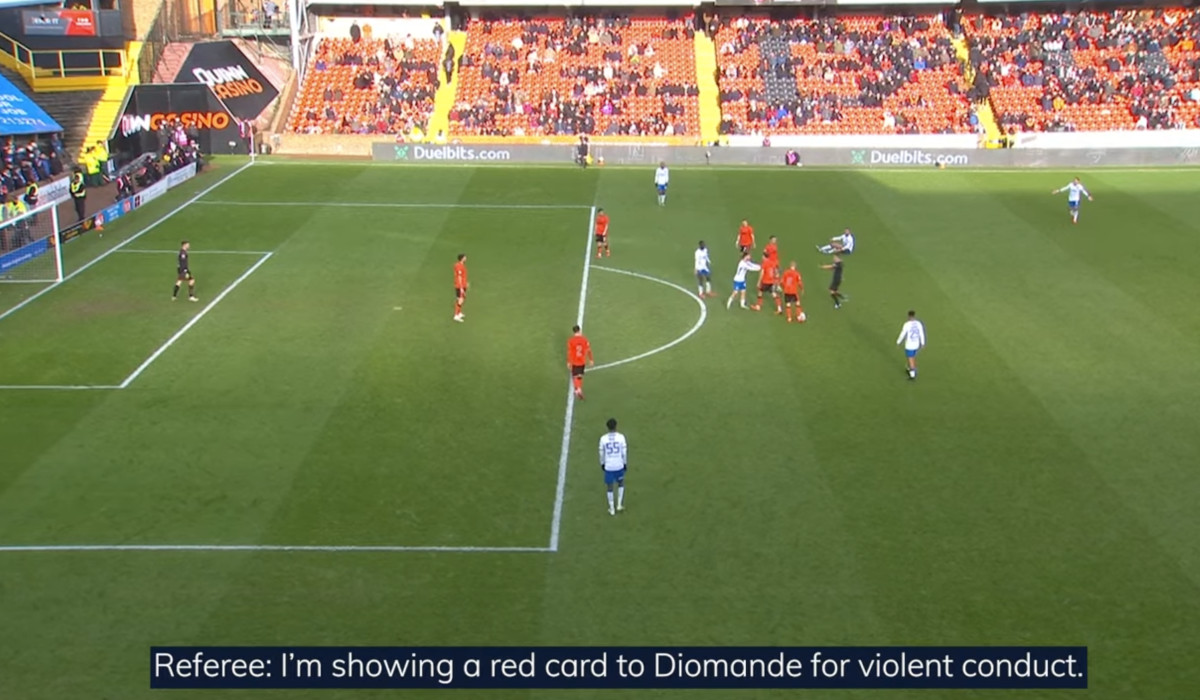In a dramatic finish at Tannadice on the 26th of January, Rangers midfielder Mohamed Diomande was shown a red card by referee Nick Walsh in the 95th minute for what was deemed a slap towards a Dundee United player. However, replays and subsequent reviews have sparked heated debate among fans and officials alike, raising fresh questions about the consistency of VAR decisions in Scottish football.
The Incident Unfolds
As tensions ran high in the dying moments of the match, Diomande appeared to raise his arm during an altercation with Dundee United’s number five. Walsh interpreted this as violent conduct and issued a straight red card. Yet, footage suggests that any contact was minimal, if there was any at all. VAR intervened, recommending an on-field review, but Walsh stood by his original decision after rewatching the footage on the monitor.
I see a slap towards the face. I’m going to put him off the field.
Nick Walsh
Refereeing Review: Willie Collum Weighs In
Head of Scottish Refereeing, Willie Collum, addressed the incident in a review that has just taken place, acknowledging that the decision to send off Diomande was contentious. “We’ve coached the match officials that we don’t think it’s a red card,” Collum stated, aligning with the VAR’s recommendation. “The contact, if any, is negligible, and there’s no excessive force or brutality—key criteria for violent conduct.”
Collum also pointed out that the Dundee United player involved exhibited aggressive behaviour, suggesting that the fairest outcome would have been a yellow card for both players. “There’s a clear action from both players after an initial free kick was awarded. For us, this doesn’t meet the threshold for a red card.”
Successful Appeal Adds Complexity
Adding to the controversy, Rangers successfully appealed the red card, further highlighting inconsistencies in the decision-making process. “The appeals panel didn’t believe it was a red card, and the VAR didn’t either,” Collum remarked. “But the on-field referee is entitled to his interpretation.”
This case has sparked debate about how to ensure referees align with VAR recommendations. Collum emphasised ongoing coaching and analysis to improve consistency but admitted that differing perspectives between referees and VAR officials are inevitable.
The Broader Implications for VAR in Scotland
The Diomande incident underscores ongoing frustrations with VAR in Scottish football. While VAR aims to correct clear and obvious errors, this scenario shows that human interpretation still plays a significant role. “If you don’t have an appeal system, you’re implying VAR is perfect, which it clearly isn’t,” Collum noted. “Our job is to reduce mistakes so appeals become unnecessary, but they remain a crucial safety net.”
For Rangers fans, the successful appeal is a small consolation, but the incident has reignited calls for greater consistency and clarity in officiating. As the team prepares for their next fixture at Ibrox, attention will undoubtedly remain on how referees handle high-stakes moments, with supporters hoping for fair and transparent decisions moving forward.
Stay tuned to Ibrox Insider for more updates, and don’t forget to follow us on Twitter, Facebook, and Instagram for the latest Rangers news! #Rangers #RangersFC #ScottishPremiership
